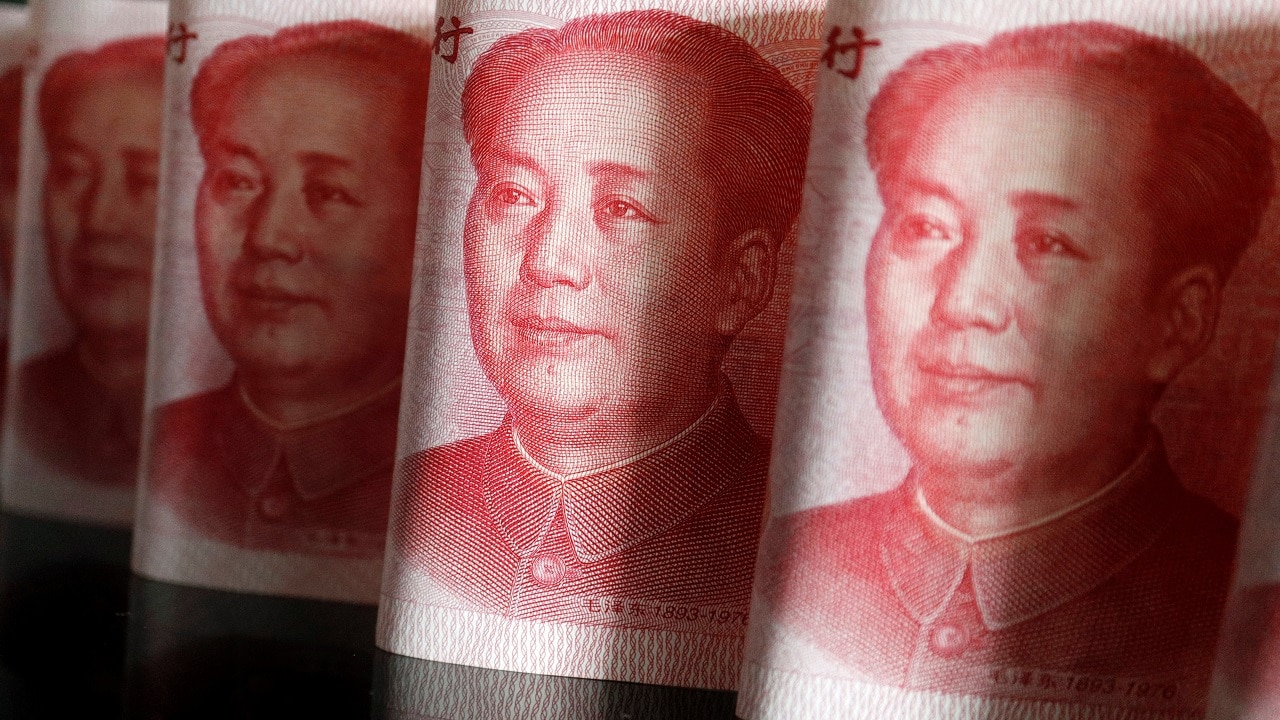Gordon Chang

China’s economy grew 0.4% in the just-completed second quarter, compared with the same period last year, according to the official National Bureau of Statistics.
According to almost everybody else, gross domestic product shrank in Q2. As Max Zenglein of the Mercator Institute for China Studies told the Washington Post before the announcement, “The government will not acknowledge a contraction.”
China’s economy not only contracted, but it is also heading for a free fall. Chinese leaders, for many reasons, cannot now stabilize the situation.
The Communist Party makes the case that trade will lift China toward the announced goal of “around 5.5%” growth for 2022. Two-way trade jumped 9.4% in the first half, year-on-year. Yet the economy is weak, something evident from the composition of trade. While exports skyrocketed 13.2%, imports, an indicator of domestic demand, increased only 4.8%.
In any event, overall growth is on a downward path. The economy, according to Beijing, grew 4.8% in the first quarter of this year.
Analysts blame COVID-19 lockdowns for Q2’s poor results. The draconian measures in the eastern part of the country—most notably in Shanghai and Beijing—dented consumer spending, of course, but the disease is still hitting the economy.
Chinese ruler Xi Jinping’s draconian “dynamic zero-COVID” policy is now shutting down neighborhoods across the country. Shanghai has been locking down areas and, there have been similar measures imposed in, for instance, Xian and Lanzhou. Xi, seeking an unprecedented third term as Party general secretary, obviously feels he cannot walk back from his economy-killing disease-control tactics.
There are, however, more fundamental problems. First, there is debt. To avoid the worst effects of the 2008 global downturn, Beijing went on a massive debt-fueled spending spree. Xi is beginning a new round of stimulus, but there is a limit as to what he can do.
Why? There is general concern about the total level of indebtedness. The country could have debt equal to about 350% of GDP. Moreover, there are new worries that China is running out of borrowing capacity.
China’s budget deficit at all levels of government widened to a record 5.1 trillion yuan ($758 billion) in the first half of the year according to Bloomberg calculations. That represents an increase of 610% over the same period last year.
Local governments, which rely heavily on land sales to keep the lights on, are extremely hard pressed. China’s fiscal revenue, even according to official figures, fell 10.2% in H1 2022 from the same period in 2020.
The property sector, accounting for perhaps as much as 30% of the Chinese economy, is in extreme distress. New home prices in 100 cities dropped by more than 40% in the first half of the year, compared with the first half of 2021.
In June, sales at the 100 largest property developers fell 43% from a year earlier. Big developers, triggered by the failure of the giant Evergrande Group, have been defaulting on debt, one after the other. For instance, Shanghai-based Shimao Group did not pay interest or principal on a US$1 billion bond this month. As CNN notes, the property sector “has been lurching from one crisis to another since 2020.”
At the moment, hundreds of thousands of buyers have halted mortgage payments on more than 200 unfinished projects across China. The mortgage boycott, as it is now called, has spread to about 80 cities. Prospective homeowners now believe that the apartments they have contracted to buy are unlikely to be completed by ailing developers.
“It certainly looks like it’s going to be endemic because people have been walking around Chinese cities looking at half-built, looming buildings that are empty, property after property, and saying to themselves, ‘Oh, in another five years this city is going to look like New York, or it’s going to look like London or Paris,’ or something like that,” said J Capital Research’s Anne Stevenson-Yang to John Batchelor, host of CBS Eye on the World, on Wednesday. “It may be that we’re at the point where the veils come off their eyes and they say, ‘Oh, damn, these are just empty buildings and nobody is doing anything.’ ”
Banks across China have been hit by the snowballing boycott. Some were in trouble even before the movement, not able to pay back deposits. At the beginning of this week, more than 3,000 depositors protested in Zhengzhou, the capital of Henan province, on the steps of the local branch of the People’s Bank of China, the central bank. There have been depositor demonstrations around China.
Chinese banks—and the Chinese banking system—are unlikely to withstand the troubles in the property sector. Even banks in Shanghai, the country’s financial capital, have had to limit withdrawals.
It is no wonder that foreign investors beginning in March, have been dumping Chinese bonds.
So far, China has been sustained by the inflows of equity investment, engineered by Wall Street cheerleaders like Ray Dalio of Bridgewater Associates and Larry Fink of BlackRock. Yet as Xi Jinping continues his assault on Chinese companies—he shocked markets by fining tech giants Alibaba and Tencent this week—inward equity flows will eventually reverse.
Xi believes in a state-dominated economy and has been steadily reversing the liberalizations sponsored by Deng Xiaoping, the successor to Mao Zedong. Xi, like Mao, has been closing off China to the world with, among other things, his self-sufficiency campaigns.
Periodically throughout Chinese history, rulers have sought to centralize control and isolate China from the outside. As Fei-Ling Wang of the Georgia Institute of Technology pointed out in The China Order: Centralia, World Empire, and the Nature of Chinese Power, such attempts result in disaster for China.
And that is the most fundamental reason why China’s economic problems are not merely a blip. The country is now led by an ideological leader who does not accept the modern world as it is.
The Chinese people are bound to pay the price. And not just last calendar quarter.
No comments:
Post a Comment